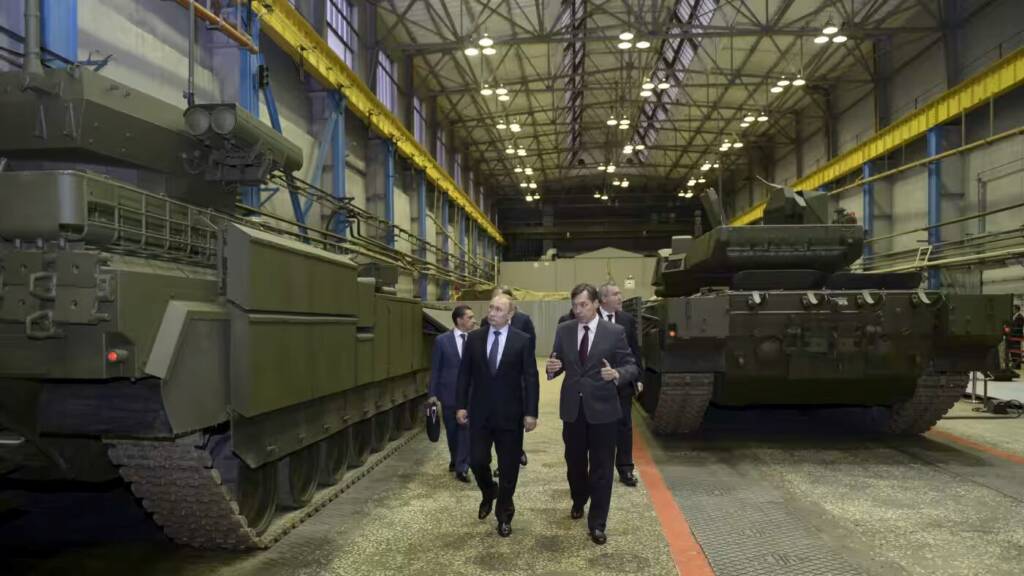As the conflict between Russia and Ukraine persists, there is evidence indicating that a Russian arms manufacturer has been circumventing sanctions on its munitions industry. A source connected to the Belarusian government, a Russian ally, reportedly established a company in China in February 2022. Since then, the arms manufacturer has been procuring crucial components for precision instruments used in tank production from Japan and Taiwan through this intermediary company.
The utilization of a third country for trade has enabled the arms maker to continue importing essential parts, highlighting a loophole in the sanctions framework. Recognizing the inadequacy of the existing measures, U.S. and British authorities are reportedly cognizant of the situation and are anticipated to strengthen sanctions to address this loophole.
Join us on Telegram: https://t.me/tfiglobal
Information gathered by Belpol, an opposition organization in exile from Belarus, reveals insights into arms industry collaborations involving Russian, Belarusian, Chinese, and other companies. The data, sourced from collaborators within Belarusian arms companies, includes contracts, transaction records, and financial payments.
A person associated with Belarusian President Aleksandr Lukashenko’s government established Shenzhen 5G High-Tech Innovation in China’s Guangdong province in 2022. This company has been involved in procuring precision instrument parts for motors, sensors, and other equipment essential for tank and weapon manufacturing. Noteworthy suppliers include Metrol, a Tachikawa-based manufacturer of precision positioning sensors, Oriental Motor, a Tokyo-based maker of small precision motors, and a prominent machine tool maker in Aichi prefecture. Shenzhen 5G is believed to have acquired additional parts from Chinese suppliers.
The obtained information indicates that Shenzhen 5G has dispatched these components to Belarusian arms manufacturers SALEO and LLC Laboratory of Additive Technologies, both under the control of Lukashenko’s government. For instance, Metrol’s sensor parts were exported to SALEO at a unit cost of 16,035 yuan ($2,228) in May 2023.
Uladzimir Zhyhar, a representative of Belpol, pointed out that arms companies in Belarus and Russia rely on precision instruments sourced from Asia by SALEO and LLC, with the final components forwarded to Russia’s UralVagonZavod for the production of mainline Russian tanks like the T-72 and T-90.
Read More: Taiwan in Crisis: Chinese Coast Guard’s Move Sparks Panic
Metrol stated that it has not directly conducted transactions with Shenzhen 5G. It expressed its intention to request clients to refrain from reselling its sensors to Shenzhen 5G and may cease supplies if cooperation is not forthcoming. Oriental Motor, in response to Nikkei, asserted non-engagement in direct dealings with Shenzhen 5G, emphasizing strict adherence to export control laws.
Despite Nikkei’s inquiries, both Shenzhen 5G and SALEO remained unresponsive as of Thursday. Belpol’s documents reveal that LLC initiated the direct procurement of encoder disks from Attoptic, a Taiwanese precision instrument manufacturer, in 2022. Encoder disks play a role in encoders, sensors detecting motion amount, direction, and angle, utilized in panoramic scopes for tanks like the T-72.
Peleng, a Russian entity subject to U.S. and British sanctions, received 600 units of these disks, amounting to 108,864 euros ($117,818). Belpol’s information discloses that LLC faced hindrances in remitting payments to Attoptic due to U.S. sanctions. LLC communicated written notices to Peleng explaining delays, attributing them to difficulties in paying for components under imposed sanctions. Eventually, LLC successfully navigated around the sanctions by routing the payment through a financial institution in Georgia, an eastern European nation, in June 2023. Subsequently, the disks were sent from Taiwan to LLC, also via Georgia, the following month. Notably, Georgia, bordering Russia, has refrained from participating in sanctions against Russia since the Ukraine invasion, serving as a reputed hub for circumventing sanctions in both financial transactions and logistics.
Taiwan has aligned itself with the Group of Seven major economies by imposing trade restrictions on Russia and Belarus. According to a representative from the International Trade Administration of the Taiwanese Ministry of Economic Affairs, the encoder disks and the LLC Laboratory of Additive Technologies are not currently subject to export restrictions, thus complying with sanctions against Russia.
Read More: Taiwan and China Clash Over Kinmen Island Inspections
“The scope of our restrictions on the export of high-tech goods to Russia is in line with those of our allies, such as the U.S., EU, the U.K. and Japan,” the representative added. If, in the future, international allies include LLC on their regulation list “we will ban Taiwanese manufacturers’ exports to this company,” he said.
In response to recent developments, Shenzhen 5G’s potential inclusion in sanctions has been noted by U.S. and British authorities. Yet, anticipating Russia’s potential establishment of another intermediary company in a third country, the challenge of closing all supply routes for restricted high-tech goods is deemed extremely difficult.
